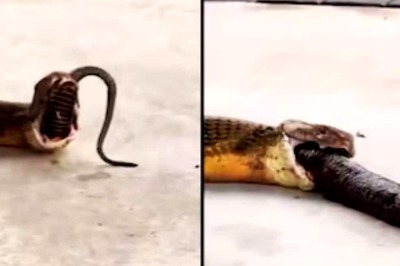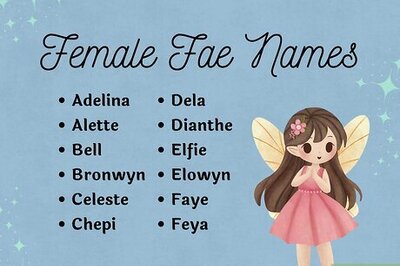
views
WASHINGTON: The Trump administration plans to return Cuba to the U.S. list of state sponsors of terrorism, a person familiar with the matter said on Monday, a move that could complicate any efforts by the incoming Biden administration to revive Obama-era detente with Havana.
U.S. Secretary of State Mike Pompeo, who could announce Cuba’s designation as soon as Monday with just nine days left in office for President Donald Trump, is expected to tie the decision to Cuba’s long-time harboring of U.S. fugitives as well as Colombian rebel leaders, the source said.
He may also cite Communist-ruled Cuba’s support for Venezuelan socialist President Nicolas Maduro, the source said, speaking on condition of anonymity.
Returning Cuba to the list is a further rollback of the detente that former President Barack Obama orchestrated between the old Cold War foes. Obama’s decision to formally remove Cuba from the terrorism list in 2015 was an important step toward restoring diplomatic ties that year.
The terrorism list decision followed months of legal review, with some administration experts questioning whether it was justified, the source said.
It would require further lengthy legal deliberations for President-elect Joe Biden to reverse the designation.
Republican Trump has clamped down on Cuba since coming to power in 2017, tightening restrictions on U.S. travel and remittances to Cuba and imposing sanctions on shipments of Venezuelan oil to the island.
Trump’s hardline Cuba policy was popular among the large Cuban-American population in south Florida, helping him win the state in November though he lost the election to Democrat Biden, who was Obama’s vice president.
He said during the election campaign he would promptly reverse Trump policies on Cuba that “have inflicted harm on the Cuban people and done nothing to advance democracy and human rights.”
But Trump’s move could make it more difficult for Biden to resume rapprochement when he takes office. Syria, Iran and North Korea are other countries on the list. The decision was first reported by Bloomberg.
Cuba has long denied any links to terrorism.
The Trump administration has kept up a steady stream of sanctions announcements, and Biden aides have said some appear designed to tie his hands when he is sworn in on Jan. 20.
A re-listing of Cuba has heavy symbolic meaning for Havana, which had chafed for decades under the U.S. designation, though it is unclear how much practical impact there will be.
The designation carries a prohibition on U.S. economic aid, a ban on U.S. arms exports, controls on “dual-use” items with military and civilian applications, and a requirement that the United States oppose loans to Cuba by international financial institutions such as the World Bank and International Monetary Fund.
But many of those restrictions are already in place – or have even been tightened by Trump – and a decades-old U.S. economic embargo remains and can only be lifted by Congress.
Among the most prominent fugitives in Cuba is Joanne Chesimard, who fled there after escaping a New Jersey prison following her conviction for killing a New Jersey State troopers in 1973.
The State Department has condemned Cuba’s refusal of Colombia’s request to extradite leaders of the ELN rebel group after it claimed responsibility for an attack at a Bogota police academy in January 2019 that killed 22.
The leaders of the National Liberation Army (ELN), the largest active guerrilla group in Colombia, traveled to Havana as part of peace negotiations that collapsed after the attack.
Cuba has received broad plaudits in the past for hosting the successful peace talks between the Colombian government and the former FARC rebel army.
Disclaimer: This post has been auto-published from an agency feed without any modifications to the text and has not been reviewed by an editor
Read all the Latest News, Breaking News and Coronavirus News here




















Comments
0 comment